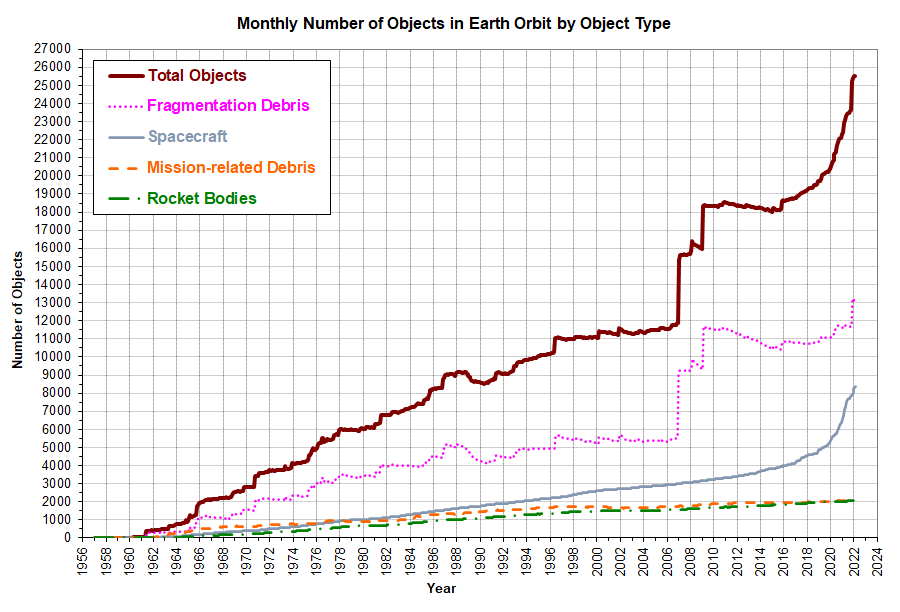
This resolves YES if we have experienced Kessler syndrome before the close date. Kessler syndrome is a scenario where collisions between objects and satellites in low earth orbit generate debris which then collides with more satellites.
I'd like to exercise discretion in resolving this, so I will avoid betting in this market myself. Here are a few factors I might find important.
Whether the collisions are cascading, i.e. it's not just debris from one collision that disables other satellites, but debris from those collisions must themselves result in debris that disables other satellites.
Timescale: If the rate of destruction of satellites spikes over the course of a few days or weeks, I'm inclined to call that Kessler syndrome. If it goes up over the course of years, I'm inclined to say that the space community is simply more tolerant of accepting losses due to chance and a higher debris environment.
Damage to space infrastructure: If 50% of satellites launched after 2020 cannot be deorbited before they are destroyed, or are forced to deorbit early, that suggests Kessler syndrome. If this number is more like 1%, then not.
People are also trading
Ironically, a defunct VEGA upper stage destined for a 2026 ESA mission to figure out removal of space debris was hit by space debris, creating more space debris.
ESA - Objects detected in the vicinity of ClearSpace-1 debris removal mission target
@Symmetry Orbit's getting rather crowded in general

ARES | Orbital Debris Program Office | LEGEND (nasa.gov)
Note that tonly objects over 10cm are included in the graph. For comparison, in 2023 it was estimated that there were 36k objects >10cm in orbit, 1mil between 1cm and 10cm and 130mil below 1cm
more info and simulations here:
